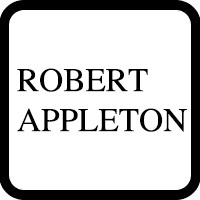Plainview RICO Act Lawyer, New York
Sponsored Law Firm
-
 x
x

Click For More Info:
-
Law Office Of Vincent Bianco Esq., P.C.
114 Old Country Road Suite 560 Mineola, NY 11501» view mapCriminal Law Where Every Client Matters
Vincent Bianco is a practicing lawyer in the state of New York who handles Criminal matters.
800-779-3490
Robert Michael Appleton
✓ VERIFIEDInternational, Criminal, Government, White Collar Crime, RICO Act
Robert M. Appleton is a world renowned and internationally recognized cross border litigation attorney focused on assisting global, foreign and US co... (more)
Harlan J. Protass
Litigation, White Collar Crime, RICO Act, Criminal
Status: In Good Standing Licensed: 28 Years
 Vincent Bianco Mineola, NY
Vincent Bianco Mineola, NY AboutLaw Office of Vincent Bianco, Esq., P.C.
AboutLaw Office of Vincent Bianco, Esq., P.C. Practice AreasExpertise
Practice AreasExpertise

